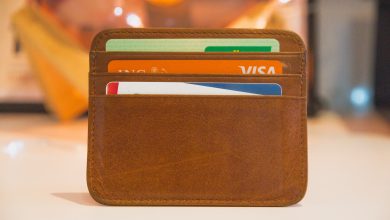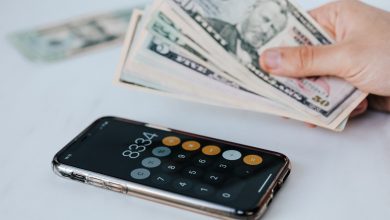Why You Should Pay Off Credit Card Bills Before They’re Due

Figuring out the mechanics of a credit card bill can be daunting. The date you choose to pay your bill can decide whether you have extra interest to pay in the next payment cycle, may reduce interest on your balance, or, sometimes, makes no difference at all.
With this in mind, there is a case to be made for paying off your card bills before they are due.
Is it possible to pay your bill too early?
The answer to that question is a surprising yes. Just as paying your credit card bills late can result in penalties, paying your credit card bill before the account statement closing date can result in an extra payment in the next billing cycle.
Your account statement closing date is the last date of your credit card’s billing cycle. It is the date when your balance statement for the current billing cycle is prepared. It is not the payment due date. The payment due date is generally after a grace period of 21-25 days from the account statement closing date.
Assume the current billing cycle of your credit card is from March 1 to March 31 (making your account statement closing date March 31), and your payment due date is April 25. You want to make an early bill payment and decide to do it on March 28.
Now, if you make a payment that covers the bill in full, then the balance of your account is zero, with no obligation for further payment. However, if the payment you make covers the bill partially, then the payment will count towards the current billing cycle of March 1 – 31. It will reduce the balance owed at the end of the billing cycle, but it will not count towards the April payment expected on the due date of April 25. You will still have to make the minimum payment for the March 1 – March 31 cycle again before April 25 or risk missing a payment.
So paying your credit card bill before the account statement closing can backfire. The ideal time would be a date as early as possible after the account statement closing date and before the payment due date. We’ll explain why.

Why should you pay your bills before the due date?
The following are ten reasons why you should pay your credit card bills before the due date:
1. Save money on interest on your balance
Credit card issuers can choose from several methods to calculate interest on your account balances. One of the widely used methods is the daily balance method. Most cards have a grace period of 21-25 days. That means that no interest is charged on the money borrowed for purchases until the payment due date. So if you have a $1,000 credit card balance that you pay completely before the due date, then you incur zero interest on this amount, and your balance on day one of the next billing cycle is $0.
However, if you have a balance from earlier months, also known as revolving balance, then interest is applied on this balance daily.
Let’s say, you have a credit card with an APR (annual percentage rate) of 21%. You have a previous balance of $10,000 and have made another purchase of $4,000. You won’t have to pay interest on the $4,000 purchase in the current billing cycle, and interest will be charged only from day one of the next billing cycle. However, an interest compounded daily will be charged on the $10,000 balance for the entire billing period.
Your daily interest rate is 21 percent divided by 365, which means that interest of 0.057% is charged on $10,000 daily. At the end of day one, your interest is $5.7, which equates to a balance of $10,005.7. On day 2, the interest of 0.057% will be applied to the new balance of $10,005.7. This daily cycle will go on until the end of the billing cycle, by when you would have accrued a compound interest of $176.49. The balance owed on the payment due date will be $10,176.49.
As you can see, the timing of the credit card bill payment can be crucial because the amount on which interest is applied increases every day. If you pay off half the revolving balance ($5,000) halfway through your billing cycle, then you cut your interest in half. The daily interest from day 16 will be compounded only on the balance of day 15 minus $5,000.
Thus, making a payment before your payment due date can save you interest on your carried balance significantly. The earlier you pay after the account statement closing date, the more savings you make on interest.
2. Improve your credit score
Nearly 35% of your credit score is based on how regularly you make credit card payments. A consistent history of timely bill payments improves your credit score steadily over time. On the other hand, making payments after the due date by even a few minutes can result in late fees being charged. Instances of late payment can stay on your credit report for nearly 24 months. Your credit score also tumbles with late payments.
To ensure that credit card bill payments occur at the right time before the payment due date, you can schedule your payments online. You can log into your account and set the credit card payment on the desired date with the amount that you want to pay. Once scheduled successfully, your bill payment will be processed on the selected date. These payments can also be scheduled so that payments are thereon debited on a particular day of the billing cycle from your bank account.
3. Lower your credit utilization rate
Your credit utilization is an important indicator of how effectively you use your lines of credit. It accounts for 30% of your credit score and is heavily impacted by the amount of balance you carry over from previous billing cycles. Credit utilization rate is your current balance of revolving credit divided by the total revolving credit available to you, expressed as a percentage. Experts recommend a credit utilization rate of 30% or lower for a favorable credit score. Credit card issuers typically report your credit balance to credit agencies around the account statement closing date. The lower the credit utilization reported to the credit bureaus by your credit issuer, the higher your credit score.
For example, let’s say that you bought a new laptop for $1,200 using a credit card that has a limit of $2,000. At the end of your statement date, your credit utilization rate is 60%. This high credit utilization, twice the recommended rate, will be reported by your bank to the credit agencies unless you lower it with timely payment. For an increase in credit score, you will have to make a prepayment of at least $600 before the account statement closing date to reduce your credit utilization rate below 30%. If making a single payment of $600 is hard for you, then you can make multiple payments in the billing cycle, like three payments of $200, to reduce your revolving credit.
4. Avoid penalties for late payment
Though it may seem like obvious advice, paying your credit card bill before the payment due date ensures that you don’t face repercussions of late payment. Charges or fees for late payment can be applied even minutes after the due date is passed. Late fees typically range from $15-$38. You can be charged a late fee close to $30 for the first late payment. This fee may increase to a higher amount (close to $38) if you fail to make payments before the due date again within six months.
Late payments are also reported to credit bureaus, as mentioned before. These late payments stay on your credit report for a long time and are visible to any lender or financial institution that makes an inquiry into your credit history. With late payments on your report, your application for a new credit card or loan may get turned down.

5. Free up your credit line for emergencies
Paying a credit card bill early not only reduces your debt and revolving credit, but also frees up your credit line for future purchases. When you make a payment towards your card bill, an equal amount of credit is added back to your available credit. For example, if you have made a $700 purchase on a $2,000 limit credit card and make a payment of $300 on your bill, your available credit line increases from $1,300 to $1,600.
Paying your credit card bill early is useful, especially if you are about to reach the credit limit of your card. If you don’t have enough credit, then you risk having your purchases on the card declined. This can be problematic during financial emergencies or contingencies, such as a car repair.
Credit card companies may also levy over-limit charges if your purchases exceed the credit limit of your card. You could also have your credit limit reduced. To have a safe amount of credit line available for emergencies, make payments on your credit card bills early.
6. Keep your credit account out of collections
It has become more common to find credit card issuers turning to debt collection agencies when customers don’t make credit card bill payments. If you have an unpaid balance of even a small amount that has not been paid for several months, your account can be sent to a collections agency for securing payment.
Once your account is handed over to collections, the terms of credit repayment change significantly. Your credit account shows up as a collections account on your credit report. The option of making a minimum payment on your credit card bill is no longer valid as well. When the collection agency contacts you, it will be for the amount in full with a possible added fee. The agency can call you multiple times in a day, turn up at your address, send you notices of debt, or even call your friends and neighbors to confirm your address. All this is legal.
With an account in collections, your credit score takes a big hit. Paying off a collections account in full does not remove it from your credit report. A collections account may stay on your credit report for nearly seven years.
A collections account is indicative of delinquency and reflects poorly on your reliability on your credit report. It increases the possibility of banks turning down future applications for loans or a credit card. Making regular payments on your credit card bill before they are due protects your credit from damages associated with collection agencies.
7. Have lower insurance rates
Your insurance rates depend on how much risk you pose to an insurance company. Insurance companies check your credit report because research has shown that credit history is a reliable indicator of the number of insurance claims a customer will make. One of the ways to measure your financial risk is your credit score. If you miss making payments on your credit card bill, your credit score will go down. Now, though this may not cause your insurance rates to go up immediately, they may become higher when you seek to renew your insurance. You may find yourself facing higher monthly premiums because your credit score is lower than what it was in the previous term.
Auto insurance companies use an insurance score that is based on your credit score. Your credit score can go down with late payments and make you seem more of a risk to insurance companies. To maintain favorable insurance rates and premiums, pay off your credit card bills before the payment due date.
8. Enjoy using your card at regular interest rates
Your credit card issuer may change the annual percentage rate (APR) on your card for making late payments. Credit card companies are allowed to change the existing interest rates if payments toward credit card bills have not been made for more than 60 days. These revised and higher interest rates are called penalty rates. Penalty rates as high as 30% are widely used by credit card issuers. In fact, credit card companies are allowed to apply penalty rates on your other credit cards with them even if you have been making regular payments on those bills.
These penalty rates are usually removed after six months of on-time payments on your credit card. However, some credit card companies may choose to apply these penalty rates to future purchases for as long as you have that card.
Penalty rates can drive up payments toward your credit card to exorbitant amounts. These monthly payments can be unaffordable and may push you towards delinquency even if you don’t want to. Paying your credit card bills before the payment due date allows you to have a trustful relationship with your credit card issuer and lets you have a line of credit at an affordable interest rate.
9. Keep your monthly payments manageable
When you fail to make a payment on time, your credit card bill is more than double the previous due amount in the next billing cycle. The payment that is due on your next billing statement includes two minimum payments on the revolving balance and a late fee.
These amounts will keep piling up every time you don’t pay your credit card bill before the payment due date. Putting off paying your credit bill on time because you are struggling to make payments will only make things harder. It may spiral the owed amount out of your control and make getting current with your credit account very difficult. It is advisable to contact your credit card issuer to set up a revised payment plan on which you can make regular payments on time.
10. Avoid having your credit card closed
We finally come to the possibility where non-payment of your credit card bill leads to the closure of your credit card. Though it is a rare measure, credit card issuers may choose to close your account if you don’t pay your credit card bill on time. Your card will get declined when you try to make purchases, and this may lead to an embarrassing situation. A closed credit account also reflects poorly on your credit report. Your credit score can plummet if there is an unpaid balance on your closed account. To keep your credit card in good standing, pay off your credit card bill on time.

There is a compelling case for paying off your credit card bill before it is due. Timing the payment is important to maximize benefits. With timely payments, you save interest on your revolving credit, keep insurance rates and APR low, improve your credit score, have more money in your credit line, and maintain a financial relationship in good standing with your credit card issuer.
The repercussions of not making timely credit card payments can be long-lasting: your credit score drops; you are charged fees on late payments; your account can be sent to collection agencies; and your credit card may even be closed. Though timing a credit card payment may seem complicated at first, you’ll find that the benefits of planning bill payments outstrip the supposed hassle by far.



